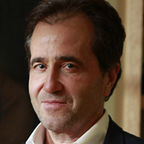Did You Know? A women’s health issue that we can fix
Last Fall I was invited to attend a gathering of 100 high-powered women and a handful of men who had convened to develop a deeper understanding of an important issue that requires our urgent attention. WHAM, Women’s Health Access Matters.
Historically women have been underrepresented in health research, and while some progress has been made since 1993 when federal mandates were put in place, there is an essential need to fund studies that close the data gap.
Why? For many reasons that range from the ethical to the practical, including the fact that recent scientific advances make it possible to improve outcomes of diseases that disproportionately impact women: autoimmune disease, Alzheimer’s, lung cancer, and cardiovascular health.
For forty-eight jam-packed hours the need for women-specific studies was underscored by scientists from Harvard, the U.S. Food and Drug Administration, University of California — Irvine, the La Jolla Institute of Immunology, University of Oxford, and more. They presented their work and discussed the findings of colleagues in their respective fields. They observed that the evidence is now unequivocally clear that although there are many biological similarities between the bodies of men and women, we cannot and should not ignore our differences.
The first reason is obvious: closing the data gap, when translated into treatments, training, and practice, will dramatically improve women’s health outcomes.
The second reason is financial. According to a RAND Corporation study, commissioned by WHAM, a $300MM investment in women-specific research will generate $13 billion to the US economy.
As the conference progressed, a deeper message emerged that has nothing to do with women (and men) fighting for equal treatment under the law: Our desire for legal and social equality should not muddle our thinking about the differences between men and women. Being equal does not mean that we are the same. We are not.
Spending a day with the data really drove the point home.
For example, everyone knows that each cell of a woman’s body has two xx chromosomes, and each man’s has xy.
But did you know that: every woman has two immune systems? The type of immune cells that women generate are very different from men’s in some fundamental ways?? And that women’s immune systems are much more powerful than men’s??? These differences have many implications for healthcare, from the complex to the mundane, including scientific confirmation that “man flu” is real. (Yep, when it comes to responding to a virus, men are the weaker sex.)
Attendees also heard a high-level summary of the findings of scientists who are mapping women’s and men’s brains. It turns out that “the brain is highly sex-influenced,” and “the differences are small, medium, and large”. These studies have implications not only for healthcare, but for schools, work, relationships.
Wanting to confirm that I understood the research correctly, I asked one speaker whether the “plasticity” of our brains could overcome the sex-based differences that are apparently hard-wired into it. The response that I received was a resounding, “No, that is not what the data tells us. There is some variation around a fairly fixed set of attributes that define cis women and cis men.”
Our current national discussion regarding healthy masculinity, women’s wellness, and gender expression would greatly benefit from the reality check that these world-class scientists have provided. The question is: Do we want to hear it? There was a great deal of discussion among the researchers and policy makers about the inability to speak truth about these matters on college campuses because of the cancel culture that has arisen.
Surrounded by these intelligent, committed scientists, I found myself optimistic about our prospects to create a health care system that not only respects the needs of individuals, but creates a new culture of well-being across genders. It is hard to believe that 40 years have passed since I took a Women’s Studies course at Radcliffe: a first step in my journey to reframe masculinity.
I am inspired by the strong, powerful women who are leading us to new understandings of what it means to be female and male.
